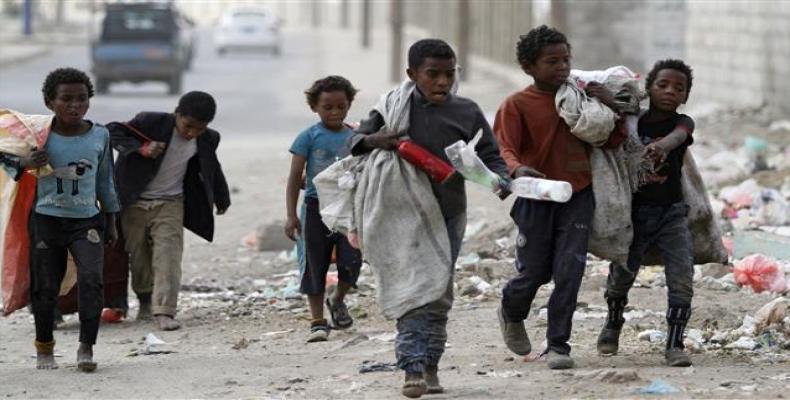Geneva, December 5 (RHC)-- A record number of 168 million people, or about one in 45 worldwide, will need assistance in 2020, the United Nations said on Wednesday, adding they would need $29 billion to provide that help.
In 2018, the United Nations planned for 146 million people needing food, shelter, health care, emergency education or basic assistance in 2019, representing one in 50 people worldwide. But more than 168 million people eventually proved to need help and protection, the Under-Secretary-General for Humanitarian Affairs and Emergency Relief Coordinator explained during a news briefing in Geneva.
More people are affected by conflicts, climate change-related events or crumbling economies than the U.N. had anticipated, Mark Lowcock said, adding this was the highest number ever registered since the second world war.
He said that the United Nations was aiming at helping about 109 million of these people as a priority -- the other ones being helped by other agencies and NGOs, or remaining out of reach -- and in order to do so they would need $29 billion. He added that there were risks emerging, and trends that could be observed, with climate change increasing people's vulnerability to crises. The world's eight worst food crises are all linked to both conflict and climate shocks.
The UN official noted that the United Nations was concerned at the global economic slowdown, which could increase the vulnerability of countries which are already facing hard economic situations.
According to the United Nations, a record number of children have been killed and maimed in 2019, as a result of a declining compliance with international law. Lowcock said there had been a noticeable increase in attacks against health workers and health-care facilities, with 791 such attacks in the first nine months of 2019, resulting in 171 deaths.
Yemen will remain the world's worst humanitarian crisis, with almost 80 percent of the population - about 24 million people — in need of assistance. The conflict in Syria is still triggering the world's largest refugees crisis, with 6.5 million refugees in the region.
In Africa's Sahel, displacement has dramatically increased, and hunger reached critical levels, while in Venezuela, the harsh economic crisis is still driving many to leave.
The economic crisis affecting Sudan, the huge humanitarian needs in the Demorcatic Republic of Congo, Somalia and South Sudan and the socioeconomic and political crisis affecting Haiti are all major causes for concern.
Under current trends, if nothing is done to tackle the causes of conflict, but also of climate change, more than 200 million people could be in need of assistance in 2022, the UN forecasts.


